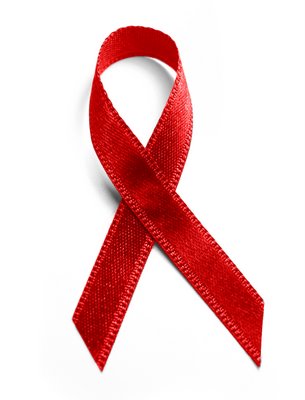International AIDS Conference 2006: Official Press Release - Day 5

GLOBAL EXPERTS WARN OF THE PRICE OF INACTION,
OUTLINE NEXT STEPS IN THE RESPONSE TO HIV/AIDS
AIDS 2006 Announcements of Late-breaking Research
Hold Promise for Prevention, Care and Treatment
Toronto [17 August 2006] Drawing on their on-the-ground experiences and
observations in communities ravaged by HIV/AIDS, international experts today made a dramatic call for world leaders to act decisively to prevent emerging epidemics and rapidly expand access to life-saving care and treatment for millions left behind.
"We have the tools and the knowledge to save millions of lives, and scientific
advances announced this week offer even more hope for the future" said Conference Co-Chair Dr. Helene Gayle, President of the International AIDS Society and President and CEO of CARE USA. "To squander this opportunity by failing to act - or failing to set measurable targets when we do - would be a travesty."
A highlight in today's programme are the late breaker abstract sessions, which will feature some of the most exciting and timely new research developments in the field.
Commenting on the late breaker sessions, Conference Co-Chair Dr. Mark Wainberg, Toronto Local Host Board Chair and Director of the McGill University AIDS Centre, said: "On the treatment front, the scientific developments announced today offer real hope for people living with HIV who have limited treatment options, and also add significantly to our knowledge of how best to scale up programmes in resource-limited settings. Other data in the area of prevention will help guide efforts to reduce the estimated 4 million infections that occur each year."
PLENARY SPEAKERS URGE ACTION NOW
Citing chilling examples of past inaction on HIV/AIDS by world leaders, the speakers in Thursday's plenary session, "Time to Deliver: The Price of Inaction," urged political, civil society and religious leaders to deliver a sustained, scaled-up response.
Mark Heywood (South Africa) of the AIDS Law Project at the University of
Witwatersrand drew parallels between the emerging epidemic in China and the early years of the epidemic in South Africa, urging that leaders not squander the opportunity to respond swiftly and decisively in China. He urged greater pressure on developed countries to increase funding, a concrete plan to ensure universal access by 2010, endorsement of the African Unions HIV prevention and treatment targets, and the development of national and global targets by the end of 2006 as committed to in the 2006 UN Political Declaration.
Alexandra (Sasha) Volgina (Russian Federation), of SVECHA (CANDLE) highlighted the power of advocacy and protest to drive policy change, specifically in the areas of securing access to appropriate prevention and treatment services for injecting drug users (IDUs) and people living with HIV/AIDS. She gave voice to the importance of individual and community action in opposing repressive policies, calling the price of inaction death.
Musimbi Kanyoro (Kenya) of the World YWCA spoke to the importance of transforming religion, politics, and civil society in order to mount a truly effective response to the AIDS pandemic and called for the defining of societal values based on the reality in which we live.
Addressing a theme that has resonated throughout AIDS 2006, Kerrel McKay (Jamaica) of the Portland AIDS Committee urged all involved in the HIV/AIDS response to recognize the power of youth leadership and to involve them in building programmes and initiatives. AIDS 2006 included over 1,000 youth delegates, more than twice the number at AIDS 2004 in Bangkok.
LATE-BREAKING RESEARCH DOCUMENTS IMPACT OF SCALE UP, POINTS TO FUTURE DIRECTIONS
AIDS 2006's robust scientific programme concluded with the presentation of 50 late-breaking abstracts across the five conference tracks. Among the many topics covered in the late breakers were the successes and challenges in treatment scale up, the potential benefit of new entry inhibitors and prevention options, promising directions in vaccine research and the need to remain vigilant in maintaining proven prevention strategies. All conference abstracts, including the late-breakers, are available through the online Programme-at-a-Glance at www.aids2006.org.
XVI INTERNATIONAL AIDS CONFERENCE
The XVI International AIDS Conference, organized by the International AIDS Society (IAS) and the AIDS 2006 Toronto Local Host, is the biennial gathering of the global AIDS community. The conference will feature the presentation of more than 4,500 abstracts and an array of community and cultural activities. Over 24,000 participants from more than 170 countries are in attendance.
IAS, the world's leading independent association of HIV/AIDS professionals with 10,000-plus members from 153 countries, convenes the world's largest meetings on HIV/AIDS--the International AIDS Conference and the IAS Conference on HIV Pathogenesis, Treatment and Prevention. The Local Host has been responsible for preparing Toronto and Canada as host city and country, as well as for a number of programme activities. The conference co-organizers are UNAIDS, Global Network of People Living with HIV/AIDS, International Council of AIDS Service Organizations, International Community of Women Living with HIV/AIDS and the Canadian AIDS Society.
Additional Resources
For additional information, including programme information, abstracts, rapporteur and scientific summaries, and links to webcasts, podcasts, transcripts and presentations from key conference sessions, please visit www.aids2006.org.
Categories: Science news, Science, News, HIV/AIDS, Health










0 Comments:
Post a Comment
<< Home